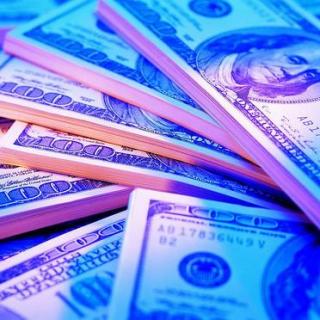
介绍:
China's External Debt Edges up in 2014
Anchor:
New data shows China's outstanding external debt came in at nearly 900-billion US dollars at the end of last year.
This is up 2.5-percent from a year earlier.
Of the total outstanding debt, short-term external debt, due within a year, makes up just over two-thirds of China's overall debt-load.
Medium- and long-term debt makes up the rest.
Despite the increase, China's forex regulator says the country's external debt risk remains within control.
For more on China's debt, the Beijing Hour's Paul James earlier spoke with John Ross, Senior fellow with the Chongyang Institute for Financial Studies at Renmin University.
…
Back anchor:
That was John Ross, Senior fellow of Chongyang Institute for Financial Studies at Renmin University in Beijing, speaking with the Beijing Hour's Paul James.
Alibaba Enters Auto Industry
Chinese e-commerce giant Alibaba has expanded its business scope with a newly established auto business division.
The new division will integrate all of Alibaba's online-to-offline motor services, including sales, second-hand car transactions and financing.
Alibaba and SAIC Motor announced last month the founding of a 1-billion-yuan fund to develop Internet connected vehicles.
Tencent launched a partnership in the same month with Taiwan's Hon Hai Precision Industry and luxury car dealer China Harmony Auto, to explore a business model to manufacture and sell smart electric cars.
Australian Treasurer Approves Acquisition of Top Aussie Construction Firm by Chinese Company
Australian Treasurer Joe Hockey has approved the acquisition of John Holland by a subsidiary of China Communications Construction Company.
The deal is reported to be worth about 880 million U. S. dollars.
John Holland is one of Australia's largest engineering and construction companies.
China Communications Construction Company is the fourth-largest construction company in the world by revenue, with a presence in over 80 countries and regions.
The company is listed as CCCC on the Hong Kong and Shanghai stock exchanges.
The deal was originally set to be finalized by the end of last month.
Venezuela Inks Deal with Chinese Firm to Boost Electricity Sector
Venezuela's Ministry of Electric Energy has signed a deal with China's CAMC Engineering Company to boost the manufacturing of conductor cables and optimize national electricity distribution.
The deal is worth nearly 6 million U.S. dollars.
It is part of a government plan designed to guarantee electricity service to Venezuela's extensive plains.
Under the deal, a total of 470 tons of ACAR (aluminum conductor alloy reinforced) cable will be manufactured using Venezuelan aluminum and labor.
Meanwhile, Venezuela and China's CAMC are also exploring financing for other projects to bolster the national electricity sector.
Hungary's Central Bank Says to Build Small Chinese Bond Portfolio
Hungary's central bank has announced that it is going to build a small bond portfolio denominated in Chinese currency.
The "small" portfolio is relative to the size of the Bank's reserve assets. It will not materially influence foreign exchange reserve adequacy.
The Bank says the decision is "for economic policy and foreign currency asset diversification purposes."
The Hungarian central bank launched its five-pillar RMB Program in February in view of the RMB becoming an international reserve currency.
One pillar is to develop a foreign exchange reserve portfolio.
Australia Tax Inquiries on Global Tech Giants
Australia's tax office has promised a crack-down on global tech giants Google, Apple and Microsoft over corporate tax avoidance and minimization.
The Commissioner of Taxation, Chris Jordan, was among officials and corporations facing an inquiry in Sydney as senators sought to tighten tax loopholes.
Some attempts to close tax loopholes in the aftermath of global financial crisis in 2008 have left many countries with gaping budget holes and record debt.
Reports of profit shifting by companies away from high tax countries to more relaxed regimes have already sparked public inquiries in the United States and Britain.
The G20 has agreed to develop stricter rules on cross-border taxation to close loopholes that have allowed multinationals such as Starbucks, Google and Apple to avoid paying taxes.

